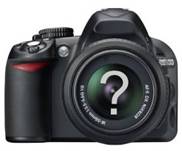How to buy a camera
How to buy a camera
How to choose the right digital camera The first thing you must decide is what type of camera you need. You have the choice of either a compact camera, superzoom camera, DSLR (Digital SLR) camera or compact system camera (hybrid). One of the key features used to sell digital cameras is the number of megapixels it has. Thanks to clever marketing from digital camera companies, most people assume that the more pixels a camera has the better the picture quality but, as you will find out, this isn’t the case. A major factor when choosing a digital camera is how much money you have to spend. £100 will buy you a good basic point and shoot camera compact camera however, as with anything, the more you spend the greater the benefits and the more useful features you will gain.
Whether you’re after a simple point-and-shoot camera or looking for a camera with more advanced features and manual control, finding the right camera can be a time consuming and painstaking process. This guide aims to point you in the right direction and get you started. 
Choosing the right camera
One of the most common questions in photography, and probably the most difficult to answer, is: ‘What is the best camera to buy?' The answer to that question depends on several factors. These include budget, intended use, level of expertise and even taste. The perfect camera for one person may be completely unsuitable for someone else. Here are a few helpful tips to get you started.What type of camera should I choose?
What digital camera.com has some great advice to help you choose which is the best camera type for you:
Camera Selection Tool – (This camera selector tool helps you decide what camera to buy for your needs. Just answer the questions by clicking on any one of the options)
If you are still undecided as to whether you should buy a DSLR or Point and Shoot Digital Camera, the Digital Photography School has a great guide to help you decide which camera type is best for you:
Digital Photography School How many pixels do I need?
When it comes to picture quality the size of the sensor tends to have greater significance than the number of pixels a digital camera has. The sensor is where the pixels are stored and the larger the sensor size the larger each pixel. This means that each pixel can collect more light and hold more information which, in the majority of cases, can help to increase picture quality. In fact fewer but bigger pixels is often better than more, smaller ones.
When deciding which camera to buy, the main questions you should ask yourself, when considering the number of pixels, is ‘Will you be printing shots?’ and, if so, how large will you be going to printing them? The main benefit of having more pixels is that bigger prints can be made, and selective crops may look better. For most people, ten megapixels is more enough to get a decent A4 print. If you’re only printing images at a normal size then anything over 4 or so megapixels will be suffice. How much should I spend?
If you’re serious about photography or want to get up close and personal to your subjects, you should be seriously thinking about looking at either a bridge camera or camera with interchangeable lenses. For around £300 you have the pick of several descent bridge cameras and for £400 you may even be able to pick up an entry-level DSLR. Spending more will give you faster shooting, more features and better build quality however, once you get to the top end, you will find that the features and specs of each camera will be more or less the same.
Still confused?
What Digital Camera.com - – Contains tonnes of advice on what camera to buy and how to use it.
What tripod should I buy?
What Lense should I buy?
What flash should I buy?
What camera bag should I buy?
You may also be interested in:
Tags: How to buy a camera; Which camera type to buy; How many pixels do I need; How much should I spend on a camera; Camera accessories;
Tweet